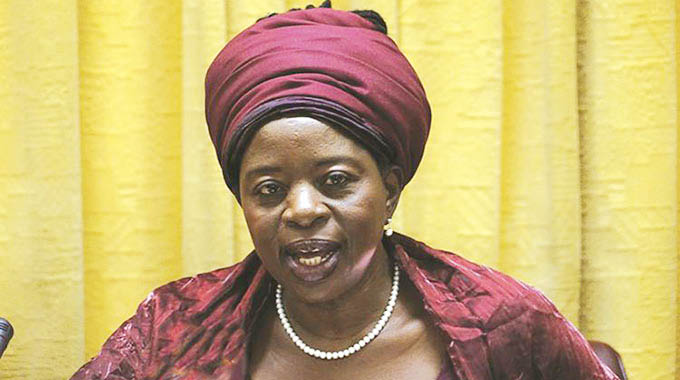
The Sunday News

Dumisani Nsingo, Senior Business Reporter
THE directive by the Government for retailers to reduce prices to levels before the country embarked on a national lockdown has failed to materialise after a big business organisation argued that its members were not consulted on the matter.
Vice-President Kembo Mohadi in April announced that the Government held a multi-sectoral meeting with the Grain Millers Association of Zimbabwe, Consumer Council of Zimbabwe, Bakers Association, Oil Expressers Association and the Confederation of Zimbabwe Retailers where a price moratorium on various basic commodities was agreed as part of measures to protect the public from unfair price increases.
The order was supposed to see prices reverting back to those that were charged by 25 March. However, there has not been any price reductions, with some retailers continuing to increase the prices of basic commodities squeezing people’s disposable incomes. For example, bread which was priced at around $27 before lockdown now costs $34 per loaf.
In a letter addressed to the Ministry of Industry and Commerce, titled “Sustainable and market friendly interventions to addressing price spiralling during the lockdown”, the Zimbabwe National Chamber of Commerce (ZNCC) said not enough consultations were done when the matter came up.
“ZNCC, with membership across all the value chains of the economy, was not consulted when the decision on the price freeze was implemented. Government announced that it was with immediate effect and that recent price increases, predominantly during the lockdown period, were speculative and unjustified. Government pointed out that the multi-sectoral stakeholders committed to a price moratorium to operate based on the prices which were applicable on March 25 and that this was supported by a Cabinet decision of April 21 2020,” read the letter.
ZNCC said instead of putting in place a price freeze the Government should consider coming up with a price monitoring mechanism.
“There is a need to shift from price controls to price monitoring. Monitoring will entail interrogating the value chains in order to realise where shocks originated from rather than just deal with retailers,” the organisation said.
ZNCC said price controls were detrimental to economic performance as they disregard market forces.
ZNCC said price freeze of basic commodities was likely to lead to artificial shortages on the market.
“With products to be affected by the price moratorium set to include basic commodities; sugar, rice, maize meal, cooking oil, salt and bread, price freeze of these commodities may decrease product availability from manufacturers and producers which will spawn shortages on retail and wholesale shelves. The suppliers of the basic commodities have not reduced the prices as yet,” it said.
The Government, however, said it would continue to negotiate with business in good faith to ensure retailers come up with affordable prices for basic commodities in accordance with the standing moratorium. Industry and Commerce Minister Dr Sekai Nzenza said the Government was aware that some unscrupulous retailers were wantonly increasing prices of goods defying a directive to revert to price levels that existed as at 25 March, just before the coronavirus national lockdown.
“We put a moratorium based on good faith. We met with retailers and agreed on the reduction of prices to ease the exorbitant costs of basic commodities. Such an agreement can only work it parties honour the promise,” she said.
Asked if Government was going to take punitive measures against businesses that have defied its directive, Dr Nzenza said: “We will continue to engage in dialogue with our key stakeholders in the retail and manufacturing sector. I sincerely hope we will reach an understanding in order to give the consumer fair, affordable and accessible basic food.”
Dr Nzenza, however, said the Government would continue to ensure consumers access goods at a subsidized price. Confederation of Zimbabwe Retailers president Mr Denford Mutashu said retailers were being forced to increase prices due to inflationary pressures.
“Inflationary pressures have continued to mount. Production has not increased to boost supply yet costs are mounting. The economic environment has remained largely unpredictable under the impact of Covid-19 and other perennial inconsistencies on the country’s economic direction,” he said.
Consumer Council of Zimbabwe Matabeleland regional manager Mr Comfort Muchekeza said failure by retailers to abide with Government’s price freeze directive was largely due to the fact that the move might have been taken without “proper consultation” among stakeholders.
“The idea to come up with the price freeze was rushed upon, without proper consultation from all the players in the production and distribution chain. There is always a need to come up with not only cheap and affordable prices but realistic prices, which allows business to continue supplying the market with quality goods and services while at the same time being within the reach of consumers.
“Our pricing system must not be divorced from the salaries and wages. Price freeze shouldn’t be isolated from the fundamentals of our economic activities. If we can’t freeze all other builds up and contributors to the final price, freezing the price of the final product will be difficult to implement even though we would all have agreed to the freeze,” he said.
However, National Consumer Rights Association (Nacora) advocacy advisor Mr Effie Ncube said retailers were ignoring the price moratorium by the Government due to their profiteering tendencies, which has gone unchecked over the years.
“Clearly the moratorium is being ignored. The culture of profiteering is well entrenched and addictive. Government should therefore change approach and find a more effective way to ensure affordable prices of basic commodities. The most effective way is an all-stakeholders roundtable comprising Government, business and representatives of consumers and labour,” he said.
The country has experienced a wave of wanton price increases of commodities for almost two years, most of which have been attributed to business pegging their prices against the parallel market foreign exchange rates.
This continuous rise in prices has increased calls from the people for the Government to intervene and reprimand the business community.



